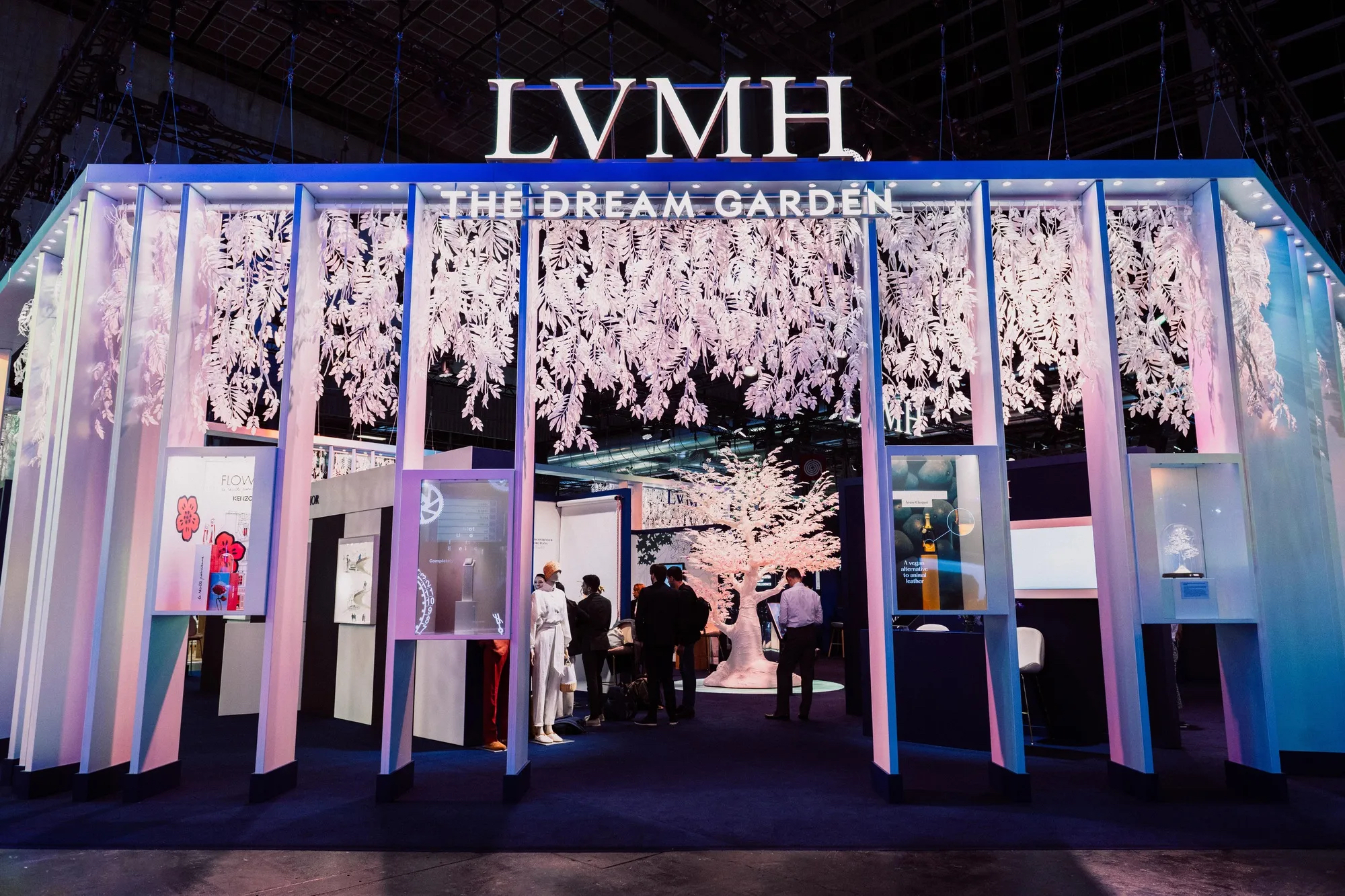LVMH Applauded the Generative AI Startup’s Potential to Influence the Intersection of Tech and Fashion Creativity
A day after French President Emmanuel Macron announced a 400-million-euro public investment in artificial intelligence research and training, the focus shifted to the VivaTech convention. At the event, generative AI technology shone the brightest with China-based FancyTech winning the LVMH Innovation Award Grand Prize presented by Chair and CEO Bernard Arnault.

FancyTech, a startup specializing in 3D modelling and generative AI content production, took home the prestigious award. “This prize once again honors a startup that puts technological developments at the service of excellence. I am confident that their expertise will match the ambition of our maisons and anticipate the expectations of our customers,” stated Arnault.
Arnault hailed the win as a “unique opportunity to collaborate with our Maisons and contribute to the transformation of the luxury sector.” FancyTech cofounder Morgan Mao emphasized the dawn of a transformation era where GenAI requires integration of artificial intelligence with human imagination to drive video generation from 3D product modelling.
The LVMH Innovation Award saw a record number of 1,545 applications from 89 countries, a rise from the previous year’s 1,320 applicants, according to Franck Le Moal, Group IT and Technology Director of LVMH. FancyTech also won the Immersive Digital Experiences award.
From these entries, 18 finalists were separated into six categories, with winners in each. These included Ircam Amplify in sound design, Aectual in 3D printed architecture from recycled materials, Glanceable in AI-for-customer feedback, Authena in IoT and AI for supply chain integrity, and Heralbony in art narratives. BLNG, a GenAI virtual studio for jewelry design, received a special mention.
Recipients of the award were presented with trophies crafted by Dior’s visual merchandise team led by Luca Albero, framed within hand-blown Murano glass and kept in a custom Louis Vuitton trunk.

Le Moal noted the shift in the award’s applicants since its inauguration in 2017, with fewer early-stage startups applying. He indicated that the award’s aim was not visibility or funding, but to encourage startups to collaborate with LVMH brands. Aiming to collaborate with at least seven to ten brands, the award aims to foster growth and development.
Recent success stories include 2021 winner Bambuser, a livestream shopping specialist, and Toshi, a last-mile luxury partner who won the 2022 award. LVMH showcased a range of tech innovations from its brands, including Sephora’s Look Analysis makeup tool, Guerlain’s Olfactive Landscapes with GenAI, and Hennessy’s Ampelos virtual reality trainer for cognac vine cutting.
The growing importance and responsible use of AI were key topics highlighted at the event. Gonzague de Pirey, Chief Omnichannel and Data Officer of LVMH, emphasized that AI tools are intended to assist, not replace, the organization’s staff.
LVMH has developed its own AI chatbot, MaIA, based on OpenAI’s GPT-4 model, and launched the Prompt Academy to train staff in leveraging these new tools. In addition to this, the group has teamed up with Stanford University’s Institute for Human-Centered Artificial Intelligence for AI safety and human-focused design research projects.
At the event, other companies like L’Oréal revealed their most recent beauty tech innovations, and an augmented AI solutions provider, Imki, displayed a denim capsule created in 21 days. Other noteworthy developments included the renewal of LVMH and Alibaba Group’s strategic partnership for five years.
The growing focus on technology, especially AI, in France was apparent during the event. Tech giants including Amazon and Microsoft announced significant investments following Macron’s “Choose France” foreign investment summit, further accentuating the nation’s growing AI ambitions.
